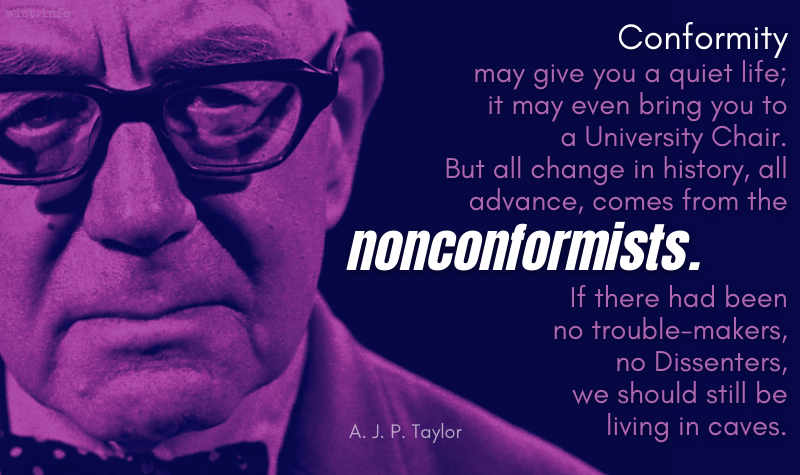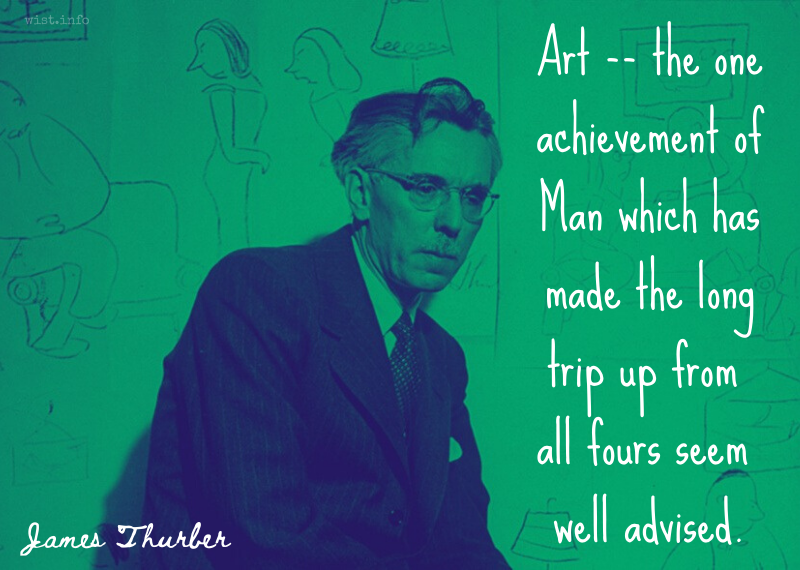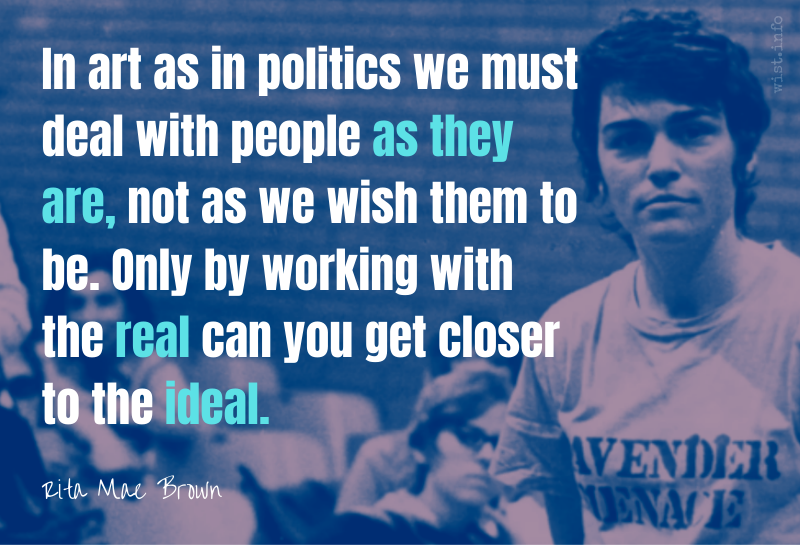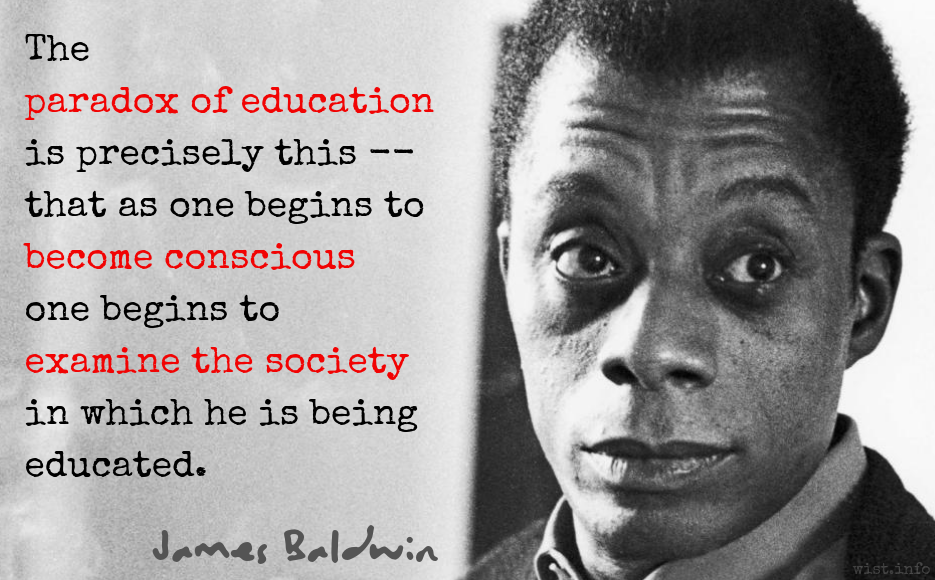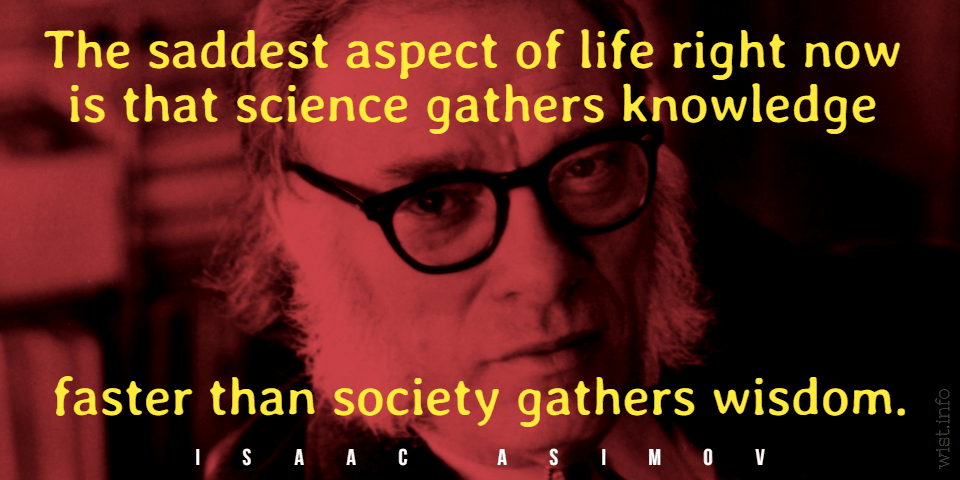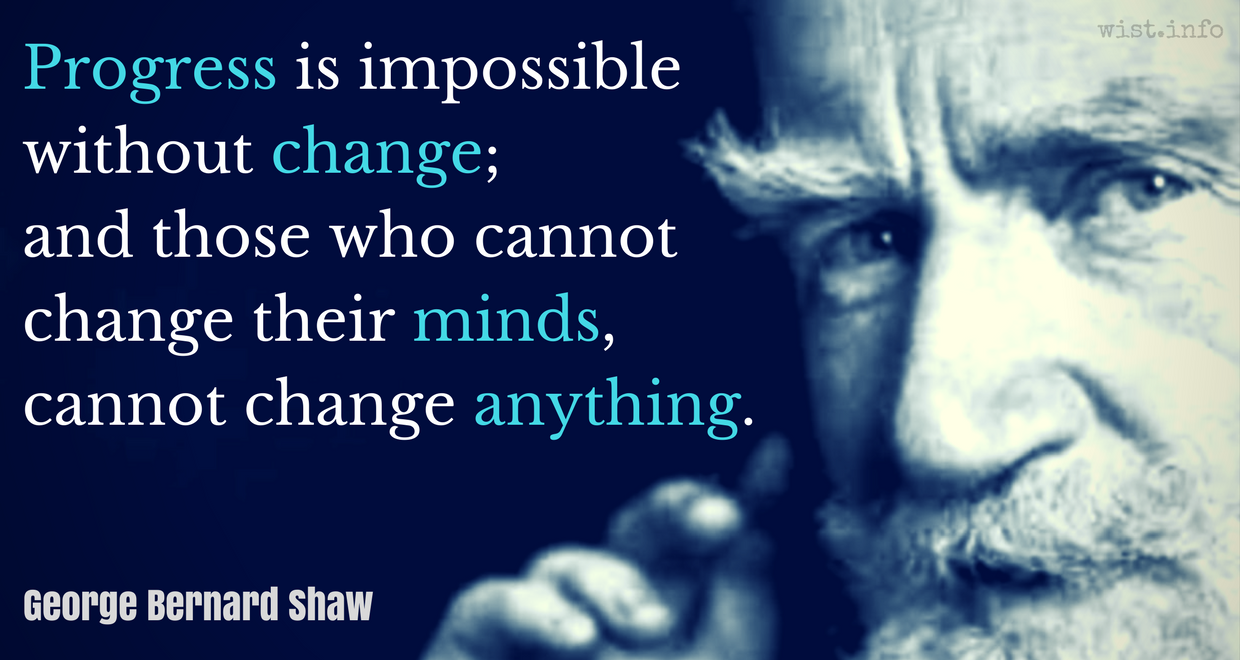We were born of risen apes, not fallen angels, and the apes were armed killers besides. And so what shall we wonder at? Our murders and massacres and missiles, and our irreconcilable regiments? Or our treaties whatever they may be worth; our symphonies however seldom they may be played; our peaceful acres, however frequently they may be converted to battlefields; our dreams however rarely they may be accomplished. The miracle of man is not how far he has sunk but how magnificently he has risen. We are known among the stars by our poems, not our corpses.
Robert Ardrey (1908-1980) American playwright, screenwriter and science writer
African Genesis: A Personal Investigation into the Animal Origins and Nature of Man (1961)
(Source)
Quotations about:
progress
Note not all quotations have been tagged, so Search may find additional quotes on this topic.
Contumely always falls upon those who break through some custom or convention. Such men, in fact, are called criminals. Everyone who overthrows an existing law is, at the start, regarded as a wicket man. Long afterward, when it is found that this law was bad and so cannot be re-established, the epithet is changed. All history treats almost exclusively of wicked men who, in the course of time, have come to be looked upon as good men. All progress is the result of successful crimes.
Friedrich Nietzsche (1844-1900) German philosopher and poet
The Dawn [Morgenröte], sec. 20 (1881) [Mencken (1907)]
(Source)
Alternate translations:
We have to make good a great deal of the contumely which has fallen on all those who, by their actions, have broken through the conventionality of some custom -- such people generally have been called criminals. Everybody who overthrew the existing moral law has hitherto, at least in the beginning, been considered a wicked man; but when afterwards, as sometimes happened, the old law could not be re-established and had to be abandoned, the epithet was gradually changed. History almost exclusively treats of such wicked men who, in the course of time, have been declared good men.
[tr. Volz (1903)]
One has to take back much of the defamation which people have cast upon all those who broke through the spell of a custom by means of a deed -- in general, they are called criminals. Whoever has overthrown an existing law of custom has hitherto always first been accounted a bad man: but when, as did happen the laws could not afterwards be reinstated and this fact was accepted, the predicate gradually changed -- history treats almost exclusively of these bad men who subsequently became good men!
[tr. Hollingdale (1997)]
The nation faces forward. It is made and remade every day. If we believe that the nation resides in the orderly recitations of history given to us by our leaders, then our story is over.
Timothy Snyder (b. 1969) American historian, author
The Red Prince, “Orange: European Revolutions” (2008)
(Source)
Were there none who were discontented with what they have, the world would never reach anything better.
Florence Nightingale (1820-1910) English social reformer, statistician, founder of modern nursing
Cassandra (1860)
(Source)
All citizens do have a measure of control, at least in democracies where their votes are counted, of how they belong to their nations. Perhaps they will have more confidence in unconventional choices if they see that each nation’s founders were disobedient and unpredictable, men and women of imagination and ambition. The steel of every national monument was once molten.
Timothy Snyder (b. 1969) American historian, author
The Red Prince, “Orange: European Revolutions” (2008)
(Source)
I am certainly not an advocate for frequent & untried changes in laws and constitutions. I think moderate imperfections had better be borne with; because when once known, we accommodate ourselves to them, and find practical means of correcting their ill effects. but I know also that laws and institutions must go hand in hand with the progress of the human mind. as that becomes more developed, more enlightened, as new discoveries are made, new truths disclosed, and manners and opinions change with the change of circumstances, institutions must advance also, and keep pace with the times. we might as well require a man to wear still the coat which fitted him when a boy, as civilised society to remain ever under the regimen of their barbarous ancestors.
Thomas Jefferson (1743-1826) American political philosopher, polymath, statesman, US President (1801-09)
Letter to “Henry Tompkinson” (Samuel Kercheval) (12 Jul 1816)
(Source)
Inscribed (elided) on southeast side of the Jefferson Memorial:
I am not an advocate for frequent changes in laws and constitutions, but laws and institutions must go hand in hand with the progress of the human mind. As that becomes more developed, more enlightened, as new discoveries are made, new truths discovered and manners and opinions change, with the change of circumstances, institutions must advance also to keep pace with the times. We might as well require a man to wear still the coat which fitted him when a boy as a civilized society to remain ever under the regimen of their barbarous ancestors.
Hence it is that, though in every age everybody knows that up to his own time progressive improvement has been taking place, nobody seems to reckon on any improvement during the next generation. We cannot absolutely prove that those are in error who tell us that society has reached a turning point, that we have seen our best days. But so said all before us, and with just as much apparent reason.
Thomas Babington Macaulay (1800-1859) English writer and politician
“Southey’s Colloquies on Society,” Edinburgh Review (1830)
(Source)
Review of Robert Southey, Sir Thomas More; or, Colloquies on the Progress and Prospects of Society (1829).
As people age, they confuse changes in themselves with changes in the world, and changes in the world with moral decline — the illusion of the good old days. And so every generation believes that the kids today are degrading the language and taking civilization down with it.
Steven Pinker (b. 1954) Canadian-American cognitive psychologist, linguist, author
The Sense of Style, Prologue (2014)
(Source)
From time immemorial the wise and practical have denounced every heroic spirit. Yet it has not been they who have influenced our lives. The idealists and visionaries, foolish enough to throw caution to the winds and express their ardour and faith in some supreme deed, have advanced mankind and have enriched the world.
Emma Goldman (1869-1940) Lithuanian-American anarchist, activist
Living My Life, Part 2, ch. 39 (1931)
(Source)
I hold it blasphemy to say that a man ought not to fight against authority: there is no great religion and no great freedom that has not done it, in the beginning.
George Eliot (1819-1880) English novelist [pseud. of Mary Ann Evans]
Felix Holt, the Radical, ch. 46 (1866)
(Source)
Conformity may give you a quiet life; it may even bring you to a University Chair. But all change in history, all advance, comes from the nonconformists. If there had been no trouble-makers, no Dissenters, we should still be living in caves.
That is, natural selection built the brain to survive in the world and only incidentally to understand it at a depth greater than is needed to survive. The proper task of scientists is to diagnose and correct the misalignment.
E. O. Wilson (1929-2021) American biologist, naturalist, writer [Edward Osborne Wilson]
Consilience, ch. 4 (1998)
(Source)
And speech he has learned, and thought
So swift, and the temper of mind
To dwell within cities, and not to lie bare
Amid the keen, biting frosts
Or cower beneath pelting rain;
Full of resource against all that comes to him
is Man. Against Death alone
He is left with no defence.[καὶ φθέγμα καὶ ἀνεμόεν φρόνημα καὶ ἀστυνόμους
ὀργὰς ἐδιδάξατο καὶ δυσαύλων
πάγων ὑπαίθρεια καὶ δύσομβρα φεύγειν βέλη
παντοπόρος: ἄπορος ἐπ᾽ οὐδὲν ἔρχεται
τὸ μέλλον: Ἅιδα μόνον φεῦξιν οὐκ ἐπάξεται.]Sophocles (496-406 BC) Greek tragic playwright
Antigone, l. 354ff, Stasimon 1, Strophe 2 [Chorus] (441 BC) [tr. Kitto (1962)]
(Source)
Original Greek. Alternate translations:
Language and lofty thought,
And dispositions meet for order'd cities,
These he hath taught himself; -- and how to shun
The shafts of comfortless winter, --
Both those which smite when the sky is clear,
And those which fall in showers; --
with plans for all things,
Planless in nothing, meets he the future!
Of death alone the avoidance
No foreign aid will bring.
[tr. Donaldson (1848)]
Speech and the wind-swift speed of counsel and civic wit,
He hath learnt for himself all these; and the arrowy rain to fly
And the nipping airs that freeze, 'neath the open winter sky.
He hath provision for all: fell plague he hath learnt to endure;
Safe whate'er may befall: yet for death he hath found no cure.
[tr. Storr (1859)]
Wise utterance and wind-swift thought, and city-moulding mind,
And shelter from the clear-eyed power of biting frost,
He hath taught him, and to shun the sharp, roof-penetrating rain, --
Full of resource, without device he meets no coming time;
From Death alone he shall not find reprieve;
No league may gain him that relief.
[tr. Campbell (1873)]
Speech and thought fast as the wind and the moods that give order to a city he has taught himself, and how to flee the arrows of the inhospitable frost under clear skies and the arrows of the storming rain. He has resource for everything. Lacking resource in nothing he strides towards what must come. From Death alone he shall procure no escape.
[tr. Jebb (1891)]
And speech, and wind-swift thought, and all the moods that mould a state, hath he taught himself; and how to flee the arrows of the frost, when 'tis hard lodging under the clear sky, and the arrows of the rushing rain; yea, he hath resource for all; without resource he meets nothing that must come: only against Death shall he call for aid in vain.
[tr. Jebb (1917)]
Words also, and thought as rapid as air,
He fashions to his good use; statecraft is his,
And his the skill that deflects the arrows of snow,
The spears of winter rain: from every wind
He has made himself secure -- from all but one:
In the late wind of death he cannot stand.
[tr. Fitts/Fitzgerald (1939)]
The use of language, the wind-swift motion of brain
He learnt; found out the laws of living together
In cities, building him shelter against the rain
And wintry weather.
There is nothing beyond his power. His subtlety
Meeteth all chance, all danger conquereth.
For every ill he hath found its remedy,
Save only death.
[tr. Watling (1947), l. 295ff]
Language, and thought like the wind
and the feelings that make the town,
he has taught himself, and shelter against the cold,
refuge from rain. He can always help himself.
He faces no future helpless. There's only death
that he cannot find an escape from.
[tr. Wyckoff (1954)]
And speech and thought, quick as the wind
and the mood and mind for law that rules the city --
all these he has taught himself
and shelter from the arrows of the frost
when there's rough lodging under the cold clear sky
and the shafts of lashing rain --
ready, resourceful man!
Never without resources
never an impasse as he marches on the future --
only Death, from Death alone he will find no rescue.
[tr. Fagles (1982)]
Language and a mind swift as the wind
For making plans --
These he has taught himself --
And the character to live in cities under law.
He's learned to take cover from a frost
And escape sharp arrows of sleet.
He has the means to handle every need,
Never steps toward the future without the means.
Except for Death: He's got no relief from that.
[tr. Woodruff (2001)]
Both language and thought swift as wind
and impulses that govern cities,
he has taught himself, as well as how
to escape the shafts of rain
while encamped beneath open skies.
All resourceful, he approaches no future thing
to come without resource. From Hades alone
he will not contrive escape.
[tr. Tyrell/Bennett (2002)]
And man has learnt speech and thought, swifter than the wind he mastered
And learnt to govern his cities well
And this omniscient being has learnt how to avoid the blasts of the wild open air: the arrows of the freezing night, the dreadful wind driven piercing gale!
He’s prepared for all events bar Death and from Death he can find no escape.
[tr. Theodoridis (2004)]
He’s taught himself speech and wind-swift thought,
trained his feelings for communal civic life,
learning to escape the icy shafts of frost,
volleys of pelting rain in winter storms,
the harsh life lived under the open sky.
That’s man -- so resourceful in all he does.
There’s no event his skill cannot confront --
other than death -- that alone he cannot shun.
[tr. Johnston (2005), l. 405ff]
He taught himself language and wind-like thought and city-ruling urges, how to flee the slings of frost under winter's clear sky and the arrows of stormy rain, ever-resourceful. Against no possibility is he at a loss. For death alone he finds no aid.
[tr. Thomas (2005)]
It is not sufficient that the state of affairs which we seek to promote should be better than the state of affairs which preceded it; it must be sufficiently better to make up for the evils of the transition.
John Maynard Keynes (1883-1946) English economist
“The Political Doctrines of Edmund Burke” (1904)
(Source)
Truths that startled the generation in which they were first announced become in the next age the commonplaces of conversation; as the famous airs of operas which thrilled the first audiences come to be played on hand-organs in the streets.
Two things have always been true about human beings. One, the world is always getting better. Two, the people living at that time think it’s getting worse. It’s because you get older, your responsibilities are different. Now I’m taking care of children instead of being a child. It makes the world look scarier. That happens to everyone.
Penn Jillette (b. 1955) American stage magician, actor, musician, author
“Honest Questions with Penn Jillette,” Interview by Glen Beck, CNN (2 Nov 2007)
(Source)
Human nature, if it changes at all, changes not much faster than the geological face of the earth.
Alexander Solzhenitsen (1918-2008) Russian novelist, emigre [Aleksandr Isayevich Solzhenitsyn]
The Gulag Archipelago, Vol. 1 (1973) [tr. Whitney]
(Source)
Don’t ask a writer what he’s working on. It’s like asking someone with cancer about the progress of his disease.
Jay McInerney (b. 1955) American novelist, screenwriter, editor [John Barrett McInerney, Jr.]
Brightness Falls, ch. 1 (1985)
(Source)
Artists and scientists realize that no solution is ever final, but that each new creative step points the way to the next artistic or scientific problem. In contrast, those who embrace religious revelations and delusional systems tend to see them as unshakeable and permanent.
Anthony Storr (1920-2001) English psychiatrist and author
Feet of Clay: Saints, Sinners and Madmen, Introduction (1996)
(Source)
Religious believers of the world, you are free to continue to debate the simple, narrow question that divides you from atheists, but you have no right, in so doing, to treat the Humanists of the world with contempt. You owe them a deep debt of gratitude, for not only have they shed much light on a naturally dark world but they have very probably helped civilize your own specific religion.
Steve Allen (1922-2000) American composer, entertainer, and wit.
Vulgarians at the Gate (2001)
(Source)
No,
it’s no disgrace for a man, even a wise man,
to learn many things and not to be too rigid.
You’ve seen trees by a raging winter torrent,
how many sway with the flood and salvage every twig,
but not the stubborn — they’re ripped out, roots and all.[ἀλλ᾽ ἄνδρα, κεἴ τις ᾖ σοφός, τὸ μανθάνειν
πόλλ᾽, αἰσχρὸν οὐδὲν καὶ τὸ μὴ τείνειν ἄγαν.
ὁρᾷς παρὰ ῥείθροισι χειμάρροις ὅσα
δένδρων ὑπείκει, κλῶνας ὡς ἐκσῴζεται,
τὰ δ᾽ ἀντιτείνοντ᾽ αὐτόπρεμν᾽ ἀπόλλυται.]Sophocles (496-406 BC) Greek tragic playwright
Antigone, l. 710ff [Haemon] (441 BC) [tr. Fagles (1982), l. 794ff]
(Source)
Ancient Greek. Alternate translations:
But that a man, how wise soe'er, should learn
In many things and slack his stubborn will,
This is no derogation. When the streams
Are swollen by mountain-torrents, thou hast seen
That all the trees wich bend them to the flood
Preserve their branches from the angry current,
While those which stem it perish root and branch.
[tr. Donaldson (1848)]
The wisest man will let himself be swayed
By others' wisdom and relax in time.
See how the trees beside a stream in flood
Save, if they yield to force, each spray unharmed,
But by resisting perish root and branch.
[tr. Campbell (1873)]
'Tis no disgrace even to the wise to learn
And lend an ear to reason. You may see
The plant that yields where torrent waters flow
Saves every little twig, when the stout tree
Is torn away and dies.
[tr. Storr (1859)]
No, even when a man is wise, it brings him no shame to learn many things, and not to be too rigid. You see how the trees that stand beside the torrential streams created by a winter storm yield to it and save their branches, while the stiff and rigid perish root and all?
[tr. Jebb (1891)]
True wisdom will be ever glad to learn,
And not too fond of power. Observe the trees,
That bend to wintry torrents, how their boughs
Unhurt remain; while those that brave the storm,
Uprooted torn, shall wither and decay.
[tr. Werner (1892)]
No, though a man be wise, 'tis no shame for him to learn many things, and to bend in season. Seest thou, beside the wintry torrent's course, how the trees that yield to it save every twig, while the stiff-necked perish root and branch?
[tr. Jebb (1917)]
It is not reason never to yield to reason!
In flood time you can see how some trees bend,
And because they bend, even their twigs are safe,
While stubborn trees are torn up, roots and all
[tr. Fitts/Fitzgerald (1939), l. 570ff]
It is no weakness for the wisest man
To learn when he is wrong, know when to yield.
So, on the margin of a flooded river
Trees bending to the torrent live unbroken,
While those that strain against it are snapped off.
[tr. Watling (1947), l. 608ff]
A man, though wise, should never be ashamed
of learning more, and must unbend his mind.
Have you not seen the trees beside the torrent,
the ones that bend them saving every leaf,
while the resistant perish root and branch?
[tr. Wyckoff (1954)]
There's no disgrace, even if one is wise,
In learning more, and knowing when to yield.
See how the trees that grow beside a torrent
Preserve their branches, if they bend; the others,
Those that resist, are torn out, root and branch.
[tr. Kitto (1962)]
But a wise man can learn a lot and never be ashamed;
He knows he does not have to be rigid and close-hauled.
You've seen trees tossed by a torrent in a flash flood:
If they bend, they're saved, and every twig survives,
But if they stiffen up, they're washed out from the roots.
[tr. Woodruff (2001)]
But for a man, even if he is wise, to go on learning
many things and not to be drawn too taut is no shame.
You see how along streams swollen from winter floods
some trees yield and save their twigs,
but others resist and perish, root and branch.
[tr. Tyrell/Bennett (2002)]
On the contrary, it is no shame for even a wise man to continue learning. Nor should a man be obstinate. One can see the trees on the heavy river-banks. Those that bend with the rushing current, survive, whereas those bent against it are torn, roots and all.
[tr. Theodoridis (2004)]
For any man,
even if he’s wise, there’s nothing shameful
in learning many things, staying flexible.
You notice how in winter floods the trees
which bend before the storm preserve their twigs.
The ones who stand against it are destroyed,
root and branch.
[tr. Johnston (2005), l. 804ff]
No, it's no disgrace for a man, even a wise man, to learn many things and not to be too rigid. You see how, in the winter storms, the trees yield that save even their twigs, but those who oppose it are destroyed root and branch.
[tr. Thomas (2005)]
Even when laws have been written down, they ought not always to remain unaltered. As in other sciences, so in politics, it is impossible that all things should be precisely set down in writing; for enactments must be universal, but actions are concerned with particulars.
Aristotle (384-322 BC) Greek philosopher
Politics [Πολιτικά], Book 2, ch. 8 / 1269a.9 [tr. Jowett (1885)]
(Source)
Alt. trans.
- "Nor is it, moreover, right to permit written laws always to remain without alteration; for as in all other sciences, so in politics, it is impossible to express everything in writing with perfect exactness; for when we commit anything to writing we must use general terms, but in every action there is something particular to itself, which these may not comprehend." [tr. Ellis (1912)]
- "Moreover even written codes of law may with advantage not be left unaltered. For just as in the other arts as well, so with the structure of the state it is impossible that it should have been framed aright in all its details; for it must of necessity be couched in general terms, but our actions deal with particular things." [tr. Rackham (1932)]
- "In addition t this, it is not best to leave written laws unchanged. For just as in the case of the other arts, so with respect to political arrangements it is impossible for everything to be written down precisely; for it is necessary to write them in universal fashion, while actions concern particulars." [tr. Lord (1984)]
One need not go back two thousand years to the time when those who believed in the gospel of Jesus were thrown into the arena or hunted into dungeons to realize how little great beliefs or earnest believers are understood. The history of progress is written in the blood of men and women who have dared to espouse an unpopular cause, as, for instance, the black man’s right to his body, or woman’s right to her soul. If, then, from time immemorial, the New has met with opposition and condemnation, why should my beliefs be exempt from a crown of thorns?
Emma Goldman (1869-1940) Lithuanian-American anarchist, activist
“What I Believe,” New York World (19 Jul 1908)
(Source)
In a word, enjoy that blessing while you have it: when it is gone, do not lament it; unless, indeed, young men ought to lament the loss of boyhood, and those a little advanced in age the loss of adolescence.
[Denique isto bono utare, dum adsit, cum absit, ne requiras: nisi forte adulescentes pueritiam, paulum aetate progressi adulescentiam debent requirere.]
Marcus Tullius Cicero (106-43 BC) Roman orator, statesman, philosopher
De Senectute [Cato Maior; On Old Age], ch. 10 / sec. 33 (10.33) (44 BC) [tr. Edmonds (1874)]
(Source)
(Source (Latin)). Alternate translations:
Finally I tell the thou oughtist use of the bodily strength as whiche is one of the goodys of nature in the meane tyme whan thou hast them. But whan the goodys of bodily strength ben no more in thee thenne thou shuldist not require it nor aske it save that thou maist saye paraventure that the adolescentys which ben in the third age owghten to desyre & aske after the age of pueryce which is seconde age & by that he is the ferthir from deth. Therfor I tell the Scipion that when men ben somwhat entrid & come within adolescence which is an age fructuouse and profitable they to require it and to aske it. And not puerice called Childhode whiche is withoute availe and profite.
[tr. Worcester/Worcester/Scrope (1481), Part 3]
In fine, use and take well in worth this gift of bodily strength while thou hast it, and when it is gone do not desire nor seek to have it again, unless peradventure you will say that all young men ought to wish themselves in their infancy and swathing-bands again, or when they be somewhat further stricken in years and in the maturity or best time of their age, to wish themselves again in their adolescency.
[tr. Newton (1569)]
To conclude, use that strength which you have while you have it; but when it is gone, require it not, unlesse you thinke it a seemly thing of young men, to require their child-hood againe, and ancient men their youth.
[tr. Austin (1648)]
The force which Nature gives with care retain,
But when decay'd, 'tis folly to complain;
In age to wish for youth is full as vain,
As for a youth to turn a child again.
[tr. Denham (1669)]
The Faculties of our Bodies are to be made use of, while we possess them, but not to be lamented, when they have left us; unless you would think it reasonable that Boys should be desirous to become Children, and that those, who are become Men, should be wishing to grow Boys again.
[tr. Hemming (1716)]
In short, make use of any Good while you have it, and when it's gone look not for it, unless you think young Men would do right to require Childhood again, or Men in Years their Youth.
[tr. J. D. (1744)]
In short, while you have Strength, use it; when it leaves you, no more repine for the want of it, than you did when Lads, that your Childhood was past; or at the Years of Manhood, that you were no longer Boys.
[tr. Logan (1750)]
In a word, my friends, make a good use of your youthful vigour so long as it remains; but never let it cost you a sign when age shall have withdrawn it from you; as reasonably indeed might youth regret the loss of infancy, or manhood the extinction of youth.
[tr. Melmoth (1773)]
In a word, make use of that good thing while it is present; when it is absent do not regret it; unless, perhaps, young men ought to seek to be boys again; those who have made a little advance in years, to be young men again.
[Cornish Bros. ed. (1847)]
In fine, I would have you use strength of body while you have it: when it fails, I would not have you complain of its loss, unless you think it fitting for young men to regret their boyhood, or for those who have passed on a little farther in life to want their youth back again.
[tr. Peabody (1884)]
In fine, enjoy that blessing when you have it; when it is gone, don't wish it back -- unless we are to think that young men should wish their childhood back, and those somewhat older their youth!
[tr. Shuckburgh (1895)]
Use then the gifts you have:
When gone, regret them not: unless as men
You are to ask for boyhood to return,
When older ask for you: there still must be
A certain lapse of years.
[tr. Allison (1916)]
In short, enjoy the blessing of strength while you have it and do not bewail it when it is gone, unless, forsooth, you believe that youth must lament the loss of infancy, or early manhood the passing of youth.
[tr. Falconer (1923)]
To sum it up: use the advantages you have while you have them; when they are gone, don’t sit around wishing you could get them back. Or do you think, perhaps, that young men ought to mourn their lost boyhood, and those a bit older their younger days?
[tr. Copley (1967)]
Use whatever gifts you have while you have them, and don’t mope after them when they are gone -- unless of course you think that young men should regret their childhood and that those who are getting on should regret their youth.
[tr. Cobbold (2012)]
So to put it in a nutshell
Use your own strength and use it well
As long as it lasts and when it is spent
Just forget it unless you should
Think that boyhood regrets childhood
Or that manhood may its decline lament.
[tr. Bozzi (2015)]
In short, enjoy the blessing of bodily strength while you have it, but don't mourn when it passes away, any more than a young man should lament the end of boyhood, or a mature man the passing of youth.
[tr. Freeman (2016)]
Let me tell you the secret of such so-called successes as there have been in my life, and here I believe I give you really good advice. It was to burn my boats and demolish my bridges behind me. Then one loses no time in looking behind, when one should have quite enough to do in looking ahead — then there is no chance for you or your men but forward. You have to do or die!
Fridtjof Nansen (1861-1930) Norwegian explorer, scientist, diplomat, humanitarian
Speech, St Andrews University (3 Nov 1926)
(Source)
Translated in his Adventure, and Other Papers (1927).
Only in growth, reform, and change, paradoxically enough, is true security to be found.
The test of a democracy is not the magnificence of buildings or the speed of automobiles or the efficiency of air transportation, but rather the care given to the welfare of all the people.
Here’s to the crazy ones — the misfits, the rebels, the troublemakers, the round pegs in the square holes, the ones who see things differently. They’re not fond of rules, and they have no respect for the status quo. You can quote them, disagree with them, glorify or vilify them. About the only thing you can’t do is ignore them, because they change things, they push the human race forward. While some may see them as the crazy ones, we see genius, because the people who are crazy enough to think that they can change the world are the ones who do.
Steve Jobs (1955-2011) American computer inventor, entrepreneur
“To the Crazy Ones,” TV advertisement (1997)
(Source)
Often cited as a quotation from Steve Jobs, this was an Apple advertisement developed by Chiat/Day under the direction of Jobs after his return to the company in 1997, under the campaign "Think Different." The ad and its text was created by Chiat/Day talent like Craig Tanimoto, Rob Siltanen, and Ken Segall. (For more information on the ad's development, see Siltanen's article.)
Jobs did narrate the text at least once, but the original 1997 ad was voiced by Richard Dreyfuss.
Note: nearly all transcripts say, "But the only thing you can't do ..." while the word voiced is "About the only thing you can't do ...."
The supreme crime of the church to-day is that everywhere and in all its operations and influences it is on the side of sloth of mind; that it banishes brains, it sanctifies stupidity, it canonizes incompetence.
Upton Sinclair (1878-1968) American writer, journalist, activist, politician
The Profits of Religion, Book Two: “The Church of Good Society,” “The Canonization of Incompetence” (1917)
(Source)
MORDEN: Think about it, Captain. Look at the long history of human struggle. Six thousand years of recorded wars, bloodshed, atrocities beyond description. But look at what came out of all that. We’ve gone to the stars. Split the atom. Written sonnets. We would never have evolved this far if we hadn’t been at each other’s throats, evolving our way up inch by inch.
A human being is a deracinated caveman, as a caveman was a deracinated nephew of an ape. Everyone gets to be something by starting as something else — either that or he stays unevolved.
John Ciardi (1916-1986) American poet, writer, critic
In Vince Clemente, “‘A Man Is What He Does With His Attention’: A Conversation with John Ciardi,” Poesis, Vol. 7 #2 (1986)
(Source)
To believe that man’s aggressiveness or territoriality is in the nature of the beast is to mistake some men for all men, contemporary society for all possible societies, and, by a remarkable transformation, to justify what is as what needs must be; social repression becomes a response to, rather than a cause of, human violence.
Leon Eisenberg (1922-2009) American psychiatrist and medical educator
“The Human Nature of Human Nature,” Science (14 Apr 1972)
(Source)
Based on an address at Faculty of Medicine Day, McGill University Sesquicentennial Celebration, Montreal, Canada (1 Oct 1971).
It is a measure of the Negro’s circumstance that, in America, the smallest things usually take him so very long, and that, by the time he wins them, they are no longer little things: they are miracles.
Murray Kempton (1917-1997) American journalist.
Part of Our Time: Some Ruins & Monuments of the Thirties, ch. 8 (1955)
(Source)
On the formation of the Pullman Porters union.
In the end, it is important to remember that we cannot become what we need to be by remaining what we are.
Max De Pree (1924-2017) American businessman and writer
Leadership Is an Art, “Who Owns This Place?” (1987)
(Source)
Sometimes misquoted as "by remaining who we are."
If you said to a bunch of average people two hundred years ago “Would you be happy in a world where medical care is widely available, houses are clean, the world’s music and sights and foods can be brought into your home at small cost, travelling even 100 miles is easy, childbirth is generally not fatal to mother or child, you don’t have to die of dental abcesses and you don’t have to do what the squire tells you” they’d think you were talking about the New Jerusalem and say ‘yes’.
Terry Pratchett (1948-2015) English author
(Attributed)
Usually cited to alt.fan.pratchett, but not found in the repository.
Art — the one achievement of Man which has made the long trip up from all fours seem well advised.
James Thurber (1894-1961) American cartoonist and writer
Forum and Century (Jun 1939)
Also quoted in Clifton Fadiman, I Believe: The Personal Philosophies of Certain Eminent Men and Women of Our Time (1939).
Lead the ideas of your time and they will accompany and support you; fall behind them and they drag you along with them; oppose them and they will overwhelm you.
Napoleon Bonaparte (1769-1821) French emperor, military leader
(Attributed)
(Source)
Quoted, unsourced, in Jules Bertaut, Napoleon: In His Own Words [Virilités, maximes et pensées de Napoléon Bonaparte], ch. 4 (1916) [tr. Law and Rhodes].
Against all appearances the nature of things works for truth and right forever.
Ralph Waldo Emerson (1803-1882) American essayist, lecturer, poet
“Worship,” The Conduct of Life, ch. 6 (1860)
(Source)
Progress, far from consisting in change, depends on retentiveness. When change is absolute there remains no being to improve and no direction is set for possible improvement: and when experience is not retained, as among savages, infancy is perpetual. Those who cannot remember the past are condemned to repeat it.
George Santayana (1863-1952) Spanish-American poet and philosopher [Jorge Agustín Nicolás Ruíz de Santayana y Borrás]
The Life of Reason or The Phases of Human Progress, Vol. 1, “Reason in Common Sense,” ch. 12 (1905-1906)
(Source)
Often given as "Those who do not remember the past ...." Quoted at the Auschwitz Holocaust Museum, via Polish, as: "The one who does not remember history is bound to live through it again."
Often misattributed to Winston Churchill, who paraphrased it in a Commons speech in 1948: "Those who fail to learn from history are condemned to repeat it."
In art as in politics we must deal with people as they are, not as we wish them to be. Only by working with the real can you get closer to the ideal.
Rita Mae Brown (b. 1944) American author, playwright
In Her Day, Preface, “A Note to the Feminist Reader” (1976)
(Source)
Certainly it is presumptuous to say that we cannot improve, and that Man, who has only been in power for a few thousand years, will never learn to make use of his power. All I mean is that, if people continue to kill one another as they do, the world cannot get better than it is, and that, since there are more people than formerly, and their means for destroying one another superior, the world may well get worse. What is good in people — and consequently in the world — is their insistence on creation, their belief in friendship and loyalty for their own sakes; and, though Violence remains and is, indeed, the major partner in this muddled establishment, I believe that creativeness remains too, and will always assume direction when violence sleeps.
E. M. Forster (1879-1970) English novelist, essayist, critic, librettist [Edward Morgan Forster]
“What I Believe,” The Nation (16 Jul 1938)
(Source)
Taft explained that the great issue in this campaign is “creeping socialism.” Now that is the patented trademark of the special interest lobbies. Socialism is a scare word they have hurled at every advance the people have made in the last twenty years. Socialism is what they called public power. Socialism is what they called Social Security. Socialism is what they called farm prices supports. Socialism is what they called bank deposit insurance. Socialism is what they called the growth of free and independent labor organizations. Socialism is their name for almost anything that helps all the people.
Harry S Truman (1884-1972) US President (1945-1953)
Speech, Syracuse, New York (1952-10-10)
(Source)
Referring to Sen. Robert A. Taft (R-Ohio).
Audio recording (the quotation is at 6:35 into the speech).
Where men then are free to consult experience they will correct their practice, and make changes for the better. It follows, therefore, that the more free men are, the more changes they will make. In the beginning, possibly, for the worse; but most certainly in time for the better; until their knowledge enlarging by observation, and their judgment strengthening by exercise, they will find themselves in the straight, broad, fair road of improvement. Out of change, therefore, springs improvement; and the people who shall have imagined a peaceable mode of changing their institutions, hold a surety for their melioration. This surety is worth all other excellences. Better were the prospects of a people under the influence of the worst government who should hold the power of changing it, that those of a people under the best who should hold no such power.
Frances "Fanny" Wright (1795-1852) Scottish-American writer, lecturer, social reformer
Independence Day speech, New Harmony, Indiana (4 Jul 1828)
(Source)
The paradox of education is precisely this — that as one begins to become conscious one begins to examine the society in which he is being educated. The purpose of education, finally, is to create in a person the ability to look at the world for himself, to make his own decisions, to say to himself this is black or this is white, to decide for himself whether there is a God in heaven or not. To ask questions of the universe, and then learn to live with those questions, is the way he achieves his own identity. But no society is really anxious to have that kind of person around. What societies really, ideally, want is a citizenry which will simply obey the rules of society. If a society succeeds in this, that society is about to perish. The obligation of anyone who thinks of himself as responsible is to examine society and try to change it and to fight it -– at no matter what risk. This is the only hope society has. This is the only way societies change.
James Baldwin (1924-1987) American novelist, playwright, activist
“The Negro Child — His Self-Image,” speech (16 Oct 1963)
(Source)
Speech to educators, first published as "A Talk to Teachers," The Saturday Review (21 Dec 1963). The thesis above is restatated at the end in these words, more frequently quoted: "I began by saying that one of the paradoxes of education was that precisely at the point when you begin to develop a conscience, you must find yourself at war with your society. It is your responsibility to change society if you think of yourself as an educated person."
There is, in the institutions of this country, one principle, which, had they no other excellence, would secure to them the preference over those of all other countries. I mean — and some devout patriots will start — I mean the principle of change.
I have used a word to which is attached an obnoxious meaning. Speak of change, and the world is in alarm. And yet where do we not see change? What is there in the physical world but change? And what would there be in the moral world without change?
Frances "Fanny" Wright (1795-1852) Scottish-American writer, lecturer, social reformer
Independence Day speech, New Harmony, Indiana (4 Jul 1828)
(Source)
What is said by great employers of labor against agitators is unquestionably true. Agitators are a set of interfering, meddling people, who come down to some perfectly contented class of the community and sow the seeds of discontent amongst them. That is the reason why agitators are so absolutely necessary. Without them, in our incomplete state, there would be no advance towards civilization.
Oscar Wilde (1854-1900) Irish poet, wit, dramatist
“The Soul of Man Under Socialism” (1891)
(Source)
If you attack Stupidity, you attack an entrenched interest with friends in government and every walk of public life, and you will make small progress against it.
Robertson Davies (1913-1995) Canadian author, editor, publisher
The Table Talk of Samuel Marchbanks (1949)
(Source)
Progress is impossible without change; and those who cannot change their minds, cannot change anything.
George Bernard Shaw (1856-1950) British playwright and critic
Everybody’s Political What’s What? (1950 ed.)
(Source)
It is common to assume that human progress affects everyone — that even the dullest man, in these bright days, knows more than any man of, say, the Eighteenth Century, and is far more civilized. This assumption is quite erroneous. The men of the educated minority, no doubt, know more than their predecessors, and some of them, perhaps, it may be said that they are more civilized — though I should not like to be put to giving names — but the great masses of men, even in this inspired republic, are precisely where the mob was at the dawn of history. They are ignorant, they are dishonest, they are cowardly, they are ignoble. They know little if anything that is worth knowing, and there is not the slightest sign of a natural desire among them to increase their knowledge.
H. L. Mencken (1880-1956) American writer and journalist [Henry Lewis Mencken]
“Homo Neandertalensis,” Baltimore Evening Sun (29 Jun 1925)
(Source)
We are the highest achievement reached so far by the great constructors of evolution. We are their “latest” but certainly not their last word. The scientist must not regard anything as absolute, not even the laws of pure reason. He must remain aware of the great fact, discovered by Heraclitus, that nothing whatever really remains the same even for one moment, but that everything is perpetually changing. To regard man, the most ephemeral and rapidly evolving of all species, as the final and unsurpassable achievement of creation, especially at his present-day particularly dangerous and disagreeable stage of development, is certainly the most arrogant and dangerous of all untenable doctrines.
Konrad Lorenz (1903-1989) Austrian zoologist, ethologist, ornithologist
On Aggression, ch. 12 “On the Virtue of Scientific Humility” (1963)
(Source)
There is something wrong with our world, something fundamentally and basically wrong. I don’t think we have to look too far to see that. I’m sure that most of you would agree with me in making that assertion. And when we stop to analyze the cause of our world’s ills, many things come to mind. We begin to wonder if it is due to the fact that we don’t know enough. But it can’t be that. Because in terms of accumulated knowledge we know more today than men have known in any period of human history. We have the facts at our disposal. We know more about mathematics, about science, about social science, and philosophy than we’ve ever known in any period of the world’s history. So it can’t be because we don’t know enough. And then we wonder if it is due to the fact that our scientific genius lags behind. That is, if we have not made enough progress scientifically. Well then, it can’t be that. For our scientific progress over the past years has been amazing. Man through his scientific genius has been able to warp distance and place time in chains, so that today it’s possible to eat breakfast in New York City and supper in London, England. Back in about 1753 it took a letter three days to go from New York City to Washington, and today you can go from here to China in less time than that. It can’t be because man is stagnant in his scientific progress. Man’s scientific genius has been amazing. I think we have to look much deeper than that if we are to find the real cause of man’s problems and the real cause of the world’s ills today. If we are to really find it I think we will have to look in the hearts and souls of men.
Martin Luther King, Jr. (1929-1968) American clergyman, civil rights leader, social activist, preacher
“Rediscovering Lost Values,” Sermon, Second Baptist Church, Detroit (28 Feb 1954)
(Source)











